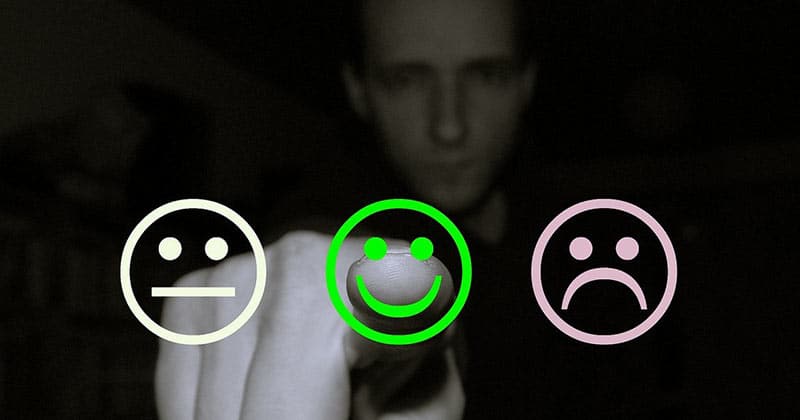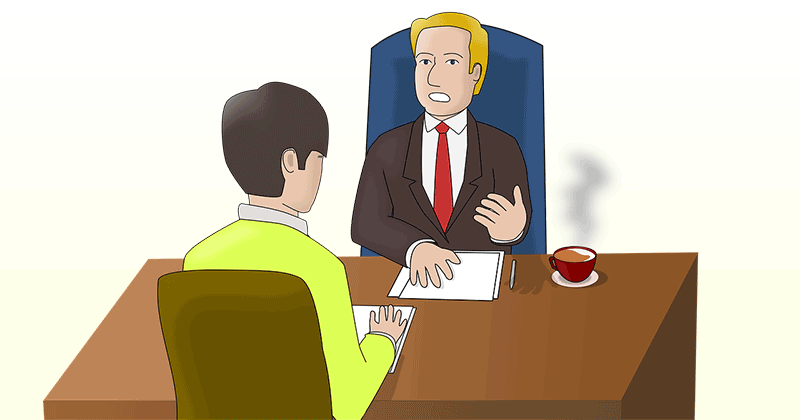Looking and acting professional at work is key to getting ahead with your career. While results count as well, you are much more likely to get promoted if your bosses can easily imagine you in the job.
Do you have consistent habits and mannerisms that make you come across as a real pro? Looking like a professional is much more than dressing well.
Professionalism includes a bunch of qualities that make you stand out as someone who is prepared, responsible and reliable. Your are consistently good at communicating with customers and clients. You make a good impression everywhere you go.
Above all, looking professional gives others huge confidence that they can trust you to carry out whatever jobs you are entrusted with. You will get things done efficiently because that is exactly the type of person you always appear to be.
The good news is that anyone can learn how to look professional and boost their chances of succeeding in the workplace.
Let’s run through 21 of our top tips for how to look more professional at work. As we go, ask yourself if you currently are doing these things?
Genuine professionals should be able to tick every box in this checklist. If you find you’re not doing one of them, the tips give you something to work on and hopefully fix.
1. Dress Smartly

Let’s start with the basics for looking professional. The first tip is to dress smartly.
This is one is easy. You don’t have to look glamorous or like a fashion icon unless you’re literally in the fashion industry. Just dress so that you look the part.
Looking the part usually means dressing like your bosses and other colleagues in senior positions. You want to get where they are, so aim to be at least as well dressed as they are. What they’re wearing should reflect the company’s brand or culture.
Business professional for women typically means tidy dresses, skirts or slacks. Tops should include neat button-down shirts or blouses with a blazer. Business professional shoes include classic heels no higher than three inches, loafers or tidy flats. Women can accessorize with minimal jewelry and belts.
Business professional for men typically refers to a dark-colored (gray, navy) suit and tie. The tie should be simple, avoiding bright colors or busy patterns. Men should wear a button-down shirt (preferably white or light-blue) and belt. Pair with a professional, closed-toed shoe like an oxford or loafer.
Indeed.com
Remember, dressing smartly is about conveying professionalism. Cute, handsome or sexy are not what it’s about. Dressing just for attention could make you appear lightweight or unprofessional, which is the last thing you want.
Imagine that you go to hire a lawyer to represent you in a court case. If the person is a man without a tie or a woman with a very short skirt, would you want them to represent you? Unlikely.
But if the person was dressed like they were ready to walk into the courtroom, you would naturally have more confidence in hiring them. Dressing professionally sends out the clear message that you are able to do the job.
Often workplaces have a dress code, whether it is official or unofficial. Pay attention to the rules. Be at least as well dressed as the people around you.
2. Answer the Phone Courteously

Phone etiquette is a big part of looking professional. The initial contact you may have with a recruiter or future boss could be from them ringing you up. Don’t blow your first impression with lousy phone manners.
The first words you utter when answering your phone convey a lot. Avoid answering your phone with something casual like “Hello?” And try to avoid sounding tired or busy with something else – even if you are called at an inconvenient time.
A couple of examples of good greetings to use are “Hello, Michael Smith speaking” or “Hi, Aubrey here, how can I help?” A brief but friendly and informative greeting creates a positive impression for the caller. Your optimistic, helpful tone is also likely to lead to a better conversation.
3. Stay Punctual

Staying punctual is another tip for how to look professional. The person who is late for meetings, misses deadlines or is last to the office in the morning sticks out for all the wrong reasons.
Punctuality is a sign of good time management. A failure to be punctual conversely shows that you are a poor time manager and, therefore, an inefficient or unreliable worker. A lack of punctuality is also plain rude in many instances. You inconvenience others needlessly.
Being punctual is quite easy to do and a habit you should definitely cultivate. Pay attention to times and the clock and use scheduling apps. Just a few minutes to check or make a schedule at the start of the day could make all the difference.
4. Be Organised

Professionalism and good organisation go hand in hand. In both cases, you have systems in place to ensure things get done efficiently and well. Lack of organisation will show up in your work as you make mistakes or struggle to do simple things quickly.
In an office setting, being organised requires that you record information in a systematic way that makes it easy to access. You are also on top of tasks and have prioritised activities.
If you don’t know how to use Microsoft Excel or some other spreadsheet software, you may want to learn quickly. MS Excel is very handy for making lists and doing numerous administration tasks. You can also do computations where numbers are involved.
Being well organised improves your productivity over time and makes you generally more efficient. In turn, you appear more professional and competent. Employees who are highly organised are more likely to be promoted.
5. Be Reliable

Bland is generally better when it comes to looking professional. Crazy, bubbly, volatile and controversial are not the kinds of qualities you want associated with you.
Professionals are dependable. Because you’re reliable, everybody knows that they can trust you to follow through on your words in a predictable way. You’re consistent with your work in both style and outcome. Reliability also means that you are always there to solve problems or help out in emergency situations.
I had an ultra professional boss who always made a small joke at the start of every presentation. The rest of the talk would then be down to business and rather boring. The joke was enough to show that he was human and had a sense of humour.
Being reliable means not surprising people with puzzling behaviour or distractions from work. Demonstrating you are reliable helps to create smooth, low-conflict relationships with colleagues. Bosses know what they will get when they ask you to do something important.
6. Communicate Clearly

To be seen as highly professional, you need to be an excellent communicator. In a busy workplace, you constantly interact with people, whether they be colleagues, clients or supervisors. The clearer is your ability to communicate, the more professional you will appear to those around.
Good communication starts with being a good listener. Otherwise, you will find yourself talking about things people aren’t interested in.
You should aim to communicate concisely in a natural way that people can easily follow. Avoid obscure words and jargon that create confusion. No-one is impressed by a show-off who is difficult to comprehend. Instead, use simple language to make sure everyone understands exactly what you’re saying.
Clear communication at work goes beyond verbal skills. Communicating well also means writing in an easily understood way. With emails, put some effort into details such as the title and what actions, if any, you want people to take.
Statistically, good communication is a vital trait for employability. A study from National Association of Colleges and Employers found that 96% of employers consider Oral/Written Communications to be an essential skillset. How you can even get past a job interview if you have lazy communication habits?
7. Project Confidence

You can look confident even if you don’t feel confident inside. That’s called projecting confidence. It can actually help you to feel more confident. Projecting confidence puts others and ease and takes the scrutiny off you.
Employers want someone who is confident in their ability and can run off and do the job without having to ask questions every five seconds.
More people need to see it as a competitive advantage. It’s a skill. It’s like whacking another qualification on your resume.
Amanda Rose
True professionals are confident because they work hard and know what they’re doing. So, projecting confidence is essential to being seen as more professional. It’s also one of the best ways to be immediately perceived as a competent individual.
8. Be Accountable

To look professional, get in the habit of being accountable for your work. Accept responsibility for getting things done and take action as soon as any problems arise.
Avoiding accountability is a certain path to looking unprofessional. No-one likes being around someone who puts up excuses for their failings. And problems can quickly snowball into disasters if they’re not dealt with quickly.
If things aren’t going perfectly, own it and don’t be afraid to look towards others for help – including your boss. People will respect you for making work outcomes the number one priority.
9. Show a Positive Attitude

Professionals project a positive, non-defeatist attitude. Showing positivity gives energy to the people around you and helps everyone to keep pushing through challenges. You’re realistic but upbeat enough to look for solutions.
Positivity goes hand in hand with a can do approach. Professionals have the know-how and character to get things done. Being positive is a sign you’re a professional who has what it takes to accomplish your goals.
No matter how great you are at what you do, having a negative attitude can hinder your own success and that of your team’s.
Debbie Brown
If you have an idea for something, the only way to make it happen is to be positive. Your optimism will rub off on others and have them seeing opportunities.
Leaders have the ability to project a positive attitude to motivate their staff. They also try to surround themselves with other positive people. That’s why positivity makes you look more professional and enhances your career prospects.
10. Respect Others

Being a professional – and a good human being – calls for you to treat everyone with respect. Irrespective of your standing within an organisation, you should be respectful to all. It doesn’t matter where they sit in the office hierarchy in relation to you.
Respectfulness is appropriate even in circumstances where you disagree with someone. Everyone’s opinion has value and they may have a good point that you don’t quite get.
Being respectful is easy if you consistently take the position that everyone deserves it. Pretending to show respect may not work. Your true feelings could become apparent in, say, your body language, tone of voice, reactions in conversations, or comments that get passed on to the person.
In a work environment, everyone needs to get along and customers or clients must be valued. Showing respect in widely different circumstances is a sign of maturity and professionalism. On the other hand, disrespecting someone may be remembered for a long time and could have you marked as nasty and unprofessional.
11. Professional Email and Signature

Email is obviously a key communication tool for work and other purposes. You want to get it set up right so that it conveys an air of professionalism.
To start with, do you have a professional email address (outside an everyday business email)? For example, “[email protected]” probably doesn’t cut it when you are applying for a job. “[email protected]” would be better.
Each email should also contain a signature block with some info about you, such as job title, and a phone number. Recipients may be annoyed and won’t take you seriously if you stay mysterious with respect to key info.
When sending emails, some mistakes that could have you looking like an amateur are: leaving out attachments, cluttering up your emails with too much information, burying action items in the middle of the email, and subject lines that don’t make it clear what the email is about. Be in the habit of writing solid emails to enhance your professional reputation.
12. Be Prepared to Lead

To look like a true professional, be willing to step up and take the lead when opportunities come up – even if you have to step outside your comfort zone. Volunteer when you get the chance and take the initiative to identify problems and suggest solutions.
If you never show a willingness to lead, your superiors will be reluctant to pick you for important jobs. And you will be passing on chances to enhance your leadership skills and reputation.
Professionals want to advance their careers. They are constantly preparing for future roles that are more challenging than what they are doing now. To look professional, you should grasp opportunities to learn and show what you can do.
13. Avoid Constant Complaining

Most people have experienced being around someones who complains too much. For example, a teammate might complain about carrying too big a load one minute, the next they have an issue with a supervisor, and later they are whinging about a lack of resources to do their job.
Working alongside a constant complainer is draining and demotivating. It creates a dark cloud in the work environment where problems and barriers seem to exist everywhere.
To look professional, minimise how much complaining you do. Show maturity by dealing with problems in a constructive way that doesn’t bring down those around you. Raise issues when you need to while being mindful of your professional image.
14. Be Honest and Trustworthy
Lying is dangerous for your career and something to be avoided if you want to look professional. The problem with lying is that it eventually catches up with you. Inconsistencies between your stories and reality can easily become apparent over time.
Distorting the truth on your CV or resume is common for example. But don’t imagine that you can easily get away with it. People will check up on the facts and it could cost you a job or even have you convicted of fraud.
The average employer is also now likely to do a quick social media check of an applicant’s LinkedIn and Facebook accounts, as well as Googling their name.
Alexis Carey
Honest and trustworthy is the way to maintain a professional appearance that lasts. You can usually tell after a while if someone is very careful with the truth or, on the opposite end of the scale, fast and loose with facts.
Who would you trust to do an important job – someone who has always been frank with you or someone with dodgy stories about their background and other people?
15. Steer Clear of Gossip
Gossiping can be an entertaining and bonding activity for people to do. But here’s a tip: Don’t gossip if you want to look professional.
Gossip is a destructive force in the workplace that can ruin reputations and relationships. Severe office gossip is cancerous to teams, leading to distrust, staff turnover and a lack of proper communication.
No good leader wants gossip happening within his or her team. As soon as it becomes evident that you’re a gossip, your boss may look to find ways to move you on.
True professionals are observant of other people and good listeners but they’re not the ones spreading hurtful information around. If you want to forge a successful career, try to see people in a positive light and be very careful about speaking negatively of others.
16. Uphold Your Ethics

To look professional, find a way to maintain your ethics while still helping your employer make a profit.
Moral dilemmas often come up in the workplace. Do you sell an expensive computer to someone who obviously doesn’t need all the features? Do you force a client to follow the terms of a contract even if it’s unfair to them?
Professionals find a sensible way to maintain their ethics while supporting the interests of their employer and themselves. Sticking to your ethical principles is an important aspect of being professional and ultimately should enhance your career prospects.
When people see unethical behaviour, they tend to dislike and distrust the person doing it. A lack of ethics can also hurt the reputation of a brand or organisation. Professionals are ethical and rightly proud of the job they do.
17. Do Professional Development

What could be a better signal of professionalism than doing professional development? Part of being professional is seeing and grasping opportunities for growth.
True professionals do workplace training when offered the chance and are interested in doing different kinds of work because of the learning opportunities. They also keep up with industry trends, developments and technologies. At a management level, many people further their career by studying for a Master of Business Administration (MBA) or other advanced degree.
If you knock back professional development opportunities, you are essentially signalling to everyone around that your are content with your current role and happy to stay there for the long term. Instead, to look more professional, do as much professional development as you can reasonably manage.
18. Accept and Act on Feedback

Feedback on individual performance is a normal work occurrence that many people dread. While you’re likely to receive some praise, you will also likely be told about areas where you can improve.
How you respond to performance feedback can make a big difference to your professional image, especially in the eyes of your supervisor. To be perceived as highly professional, welcome feedback as a path to learning, improvement and greater self awareness.
Receiving negative feedback can be tough and confronting and you may disagree with the opinion expressed. You can speak in defence of yourself in a performance review but don’t overdo it. Bosses like employees who take in information and do what they can to improve.
You can win your supervisor over with a positive reaction that shows true professionalism. The work you do on yourself will also lift your productivity over the long term, furthering your professional standing.
19. Be Mindful of Body Language

The body language you show when interacting with others can also be used to look more professional. This may be more significant than you think given most communication is actually non-verbal. Talking to someone in person conveys far more information that you get from talking on the phone for example.
Part of looking professional in terms of body language is displaying confidence. A strong upright posture for example indicates you are willing to put yourself forward and take charge if required.
But there is no particular secret to succeeding with body language displays. You need to be responsive to the situation and use everyday psychology. Striking alpha poses all the time for example probably won’t go down well with your boss.
Just be mindful that communication includes facial expressions as well as body positioning, movements and gestures. Try to carry yourself as a confident, capable professional in everything you do.
Sit or stand upright. Avoid slouching. Always hold your head high. Maintain eye contact when talking to someone. Greet people with a firm handshake. Use hand gestures when talking.
Cleverism.com
20. Keep Your Personal Life at Home
Mixing personal and work life can hurt your career. To look more professional, control what information about your home life is common knowledge at work and always be careful in how you conduct yourself.
Stay on safe ground, such as talking about where you go on holidays or what movies you’ve seen. You don’t want to reveal information that could hurt your professional image. Avoid talking about the wild party you attended on Saturday night for example or the problems you are having with a messy flatmate.
You can still make good friends with work colleagues, including gaining trusted friends that you share personal information with. After all, you spend a lot of time in the workplace.
But you don’t want to become the subject of gossip and innuendo. For that reason, getting drunk at a work function is a bad idea. And making a pass at with someone you work with should not be done lightly.
With social media, you need a strategy. If you are a big sharer, maybe don’t include workmates in your social media groups. A safe option is to stick to LinkedIn for connecting with most work colleagues.
21. Do More than Expected

The last tip is to step up and do more than is required in your work role. This helps you look like a professional who is capable, motivated and ready for greater responsibilities.
Avoid just doing the minimum amount and coasting the rest of the time. After completing your basic duties, look for extra things to help your employer and try to make them happen. Share ideas to improve workplace systems if you have them. Ask workmates if they need help with anything.
Going above and beyond not only makes you look more professional, it also gets you noticed. Your work references will be that much more impressive. And, hopefully, you will come to front of mind the next time a promotion opportunity appears.
Final Thoughts
As well as being professional, looking professional is important for career success. Cultivating a professional image helps you rise above your colleagues and climb the corporate ladder.
The people who make it to the top consistently work on how they appear and develop mannerisms that others want to emulate. People are more superficial than you might expect and bosses favour employees who look and act the part.
How did you go with this checklist of tips for looking more professional? You may have noticed that many of the tips are easy to implement. To boost your career, try them the next time you step into the workplace.

Best way to climb the corporate ladder is to focus on your work. Be a hard worker and consistently deliver quality work. You’ll build a reputation as someone who is dependable and can be trusted with responsibilities. Networking is also essential. Be friendly and make friends.
This article shouldn’t be seen as applying just for young employees. I have met and worked with experienced workers who could benefit from every point here ranging from dress attire to leadership.
I thought this was going to be one of those “dress like this” or “don’t wear this” articles. This is without a doubt, one of the most helpful articles I have ever read and I am going to print it and keep it in my office. I’m also going to send it to a colleague who has some employees who could use a little guidance.
Punctuality is a major pet peeve of mine. We know we live in a fast-paced world and sometimes things get out of hand but come on, it’s like people ignore their watches on purpose. Most of my colleagues are late for work and management does nothing about it, it’s both frustrating and disrespectful.
I like that this mentioned being confident. I think this is often one of the most overlooked factors in coming off more professional at work. Confidence (not to be confused with cockiness) will elevate your game big time. You will be more likely to earn better wages and advance faster in a company, even if you are a new hire. Great list of tips overall!
I put a lot of emphasis on being punctual. It sets a bad precedent when you’re routinely even a few minutes late.
You are so right Jasmine. I know some articles say not to be too early but better to be a bit early (use some common sense) than a bit late. It’s a bad way to start your new career and it could lead to your new career being a short one.